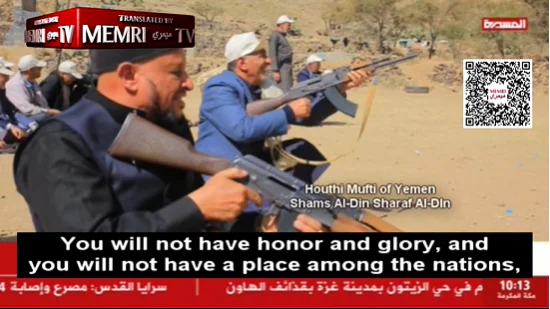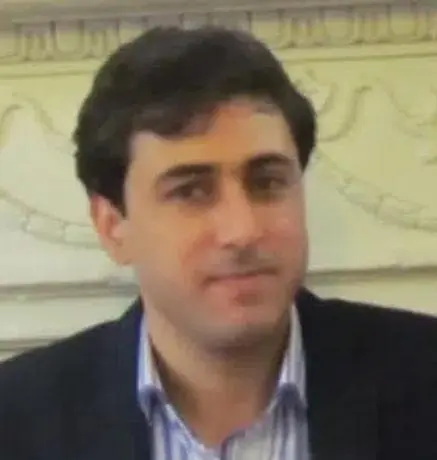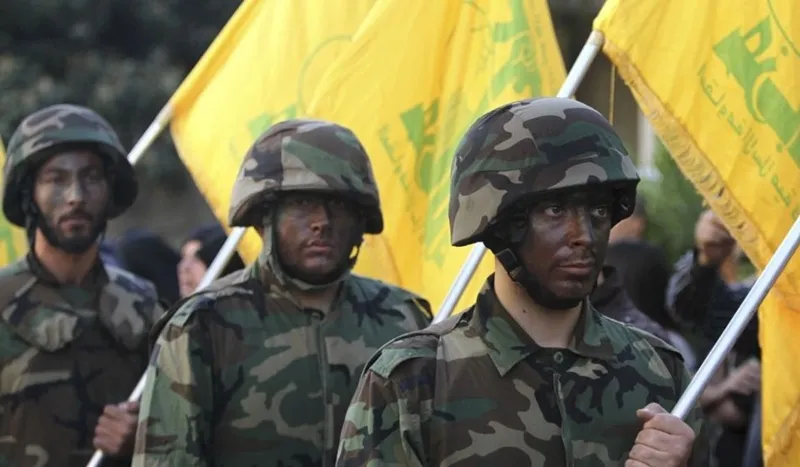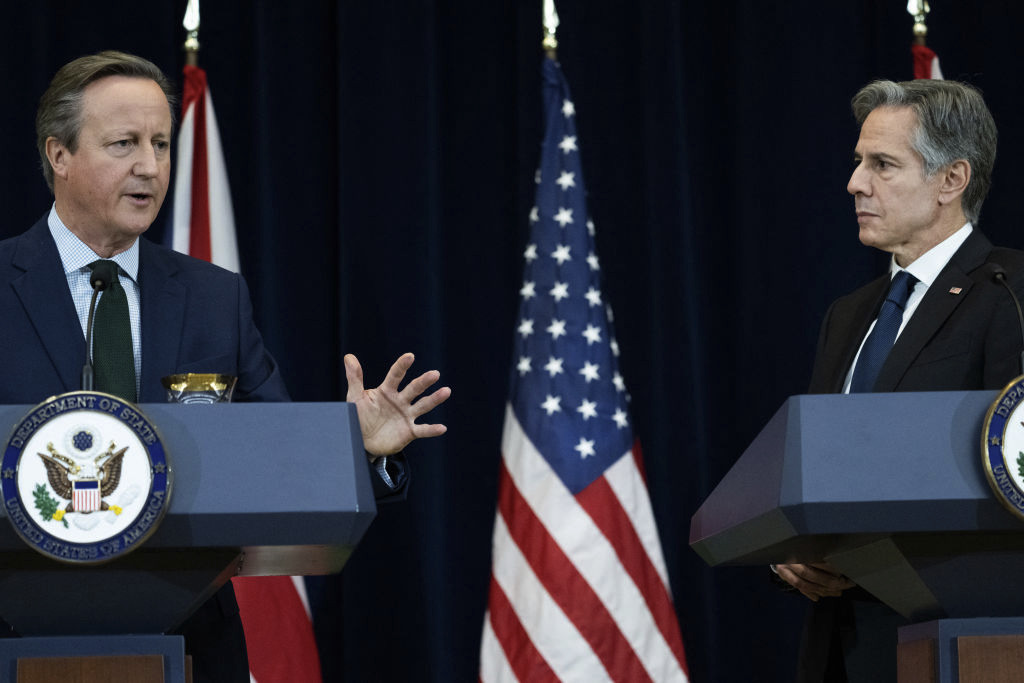Senior Officials In The Yemeni-Houthi Judiciary Participate In A Military Exercise Simulating Direct Confrontation With U.S. And Israel, Use Biden Posters As Target Practice

Al-Masirah TV [Houthis-Yemen] aired a report about officials within the Houthi judiciary undergoing military training. According to the report, the Houthi Mufti of Yemen, the attorney-general, and the justice minister, along with other judiciary officials participated in a military exercise simulating a “direct confrontation” with America and Israel. Houthi Mufti of Yemen Shams Al-Din Sharaf Al-Din said that Jihad and the culture of martyrdom are the only way to bring honor and glory. Attorney-general Muhammad Al-Dulaimi said that the participants in the military exercise felt “very proud” to learn how to fire weapons.








